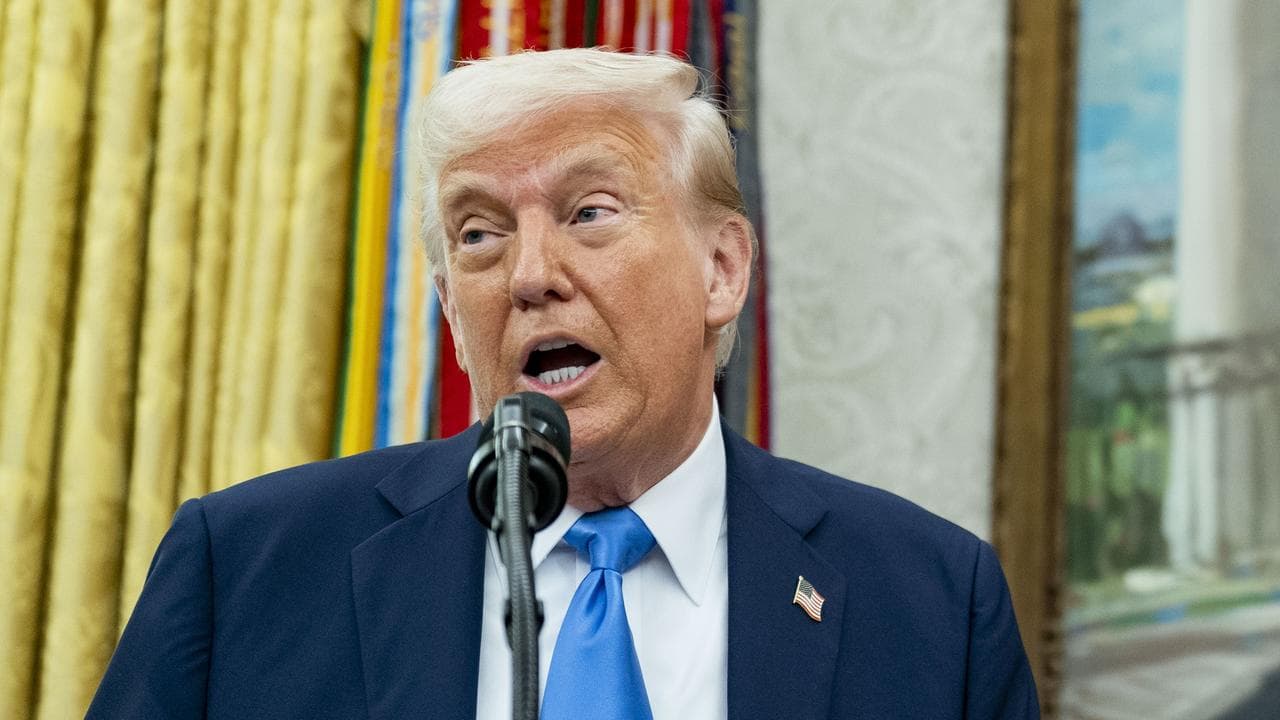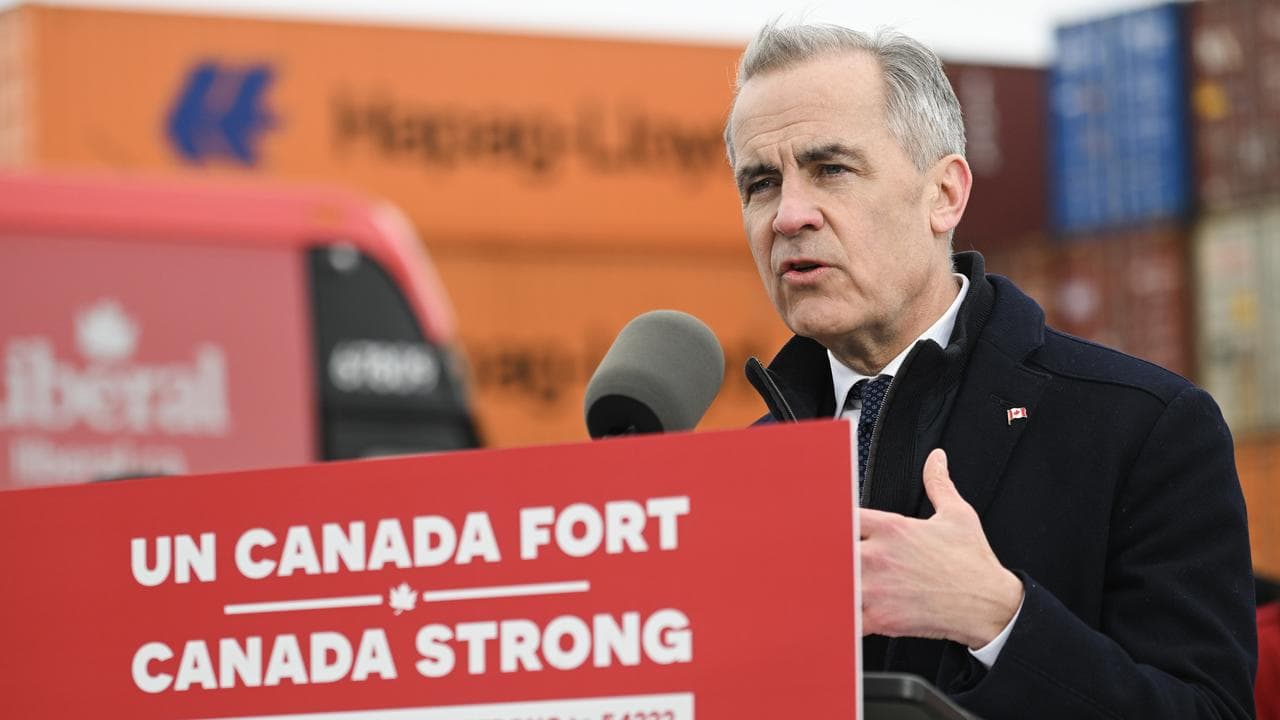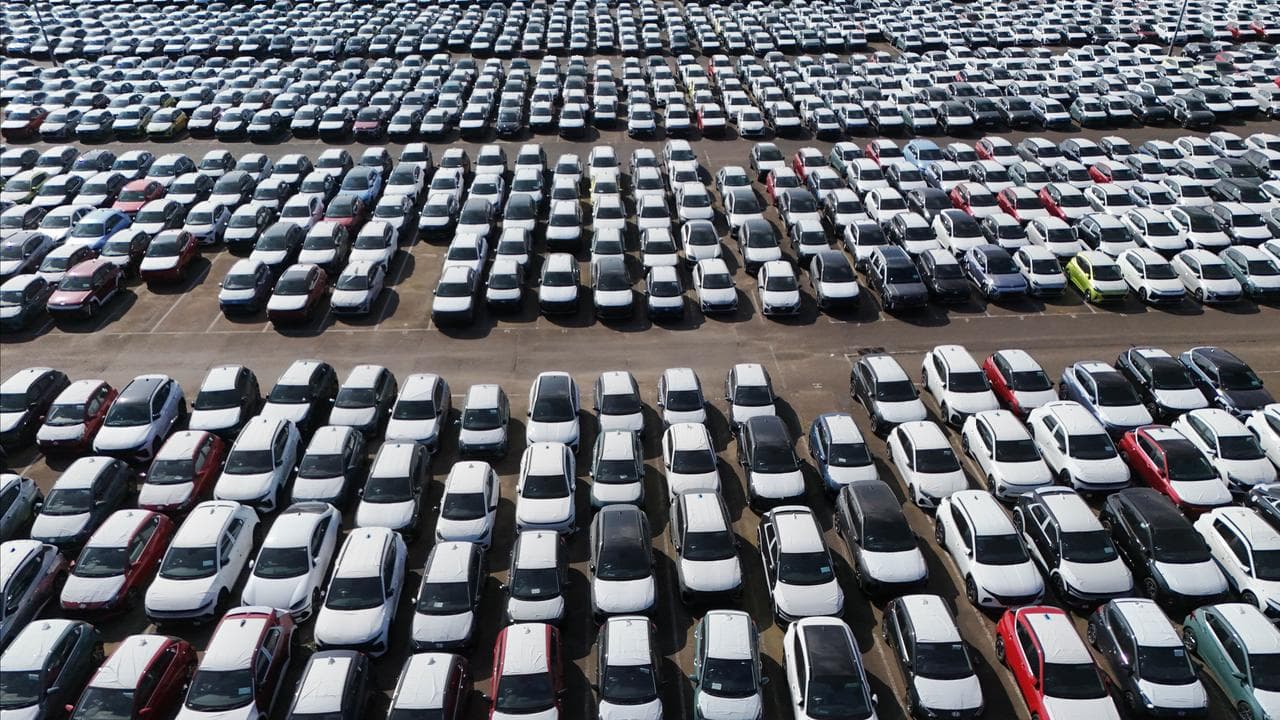
President Donald Trump says he is open to carving out deals with countries seeking to avoid US tariffs but those agreements would have to be negotiated after his administration announces reciprocal tariffs on April 2.
Speaking to reporters aboard Air Force One, Trump also said he would soon be announcing tariffs targeting the pharmaceutical industry, but declined to give any details on when or at what tariff rate.
Trump told reporters countries including Britain had approached the United States to try to cut deals and avert the reciprocal tariffs.
"They want to make deals. It's possible if we can get something for the deal," he said. "But yeah, I'm certainly open to that. If we can do something where we get something for it."
Asked if such deals could happen before April 2, Trump said, "No, probably later. It's a process."

Earlier Trump and Prime Minister Mark Carney held talks that both men described as productive, although the Canadian leader said Ottawa would be imposing retaliatory tariffs next week as promised.
The call was their first contact since Carney won the leadership of Canada's ruling Liberals on March 9.
Carney says Trump's threat of tariffs is a betrayal of a once close economic and security relationship.
"It was an extremely productive call, we agree on many things, and will be meeting immediately after Canada's upcoming election to work on elements of Politics, Business, and all other factors," Trump wrote on his social media platform Truth Social.
That work "will end up being great for both the United States of America and Canada," he added.
Trump - who often muses about annexing Canada - referred to Carney as the Canadian prime minister rather than as the governor of the 51st US state, the term he often used to describe former prime minister Justin Trudeau.
"The president respected Canada's sovereignty today, both in his private and public comments," Carney told a press conference in Montreal, saying the phone call had been very cordial.
Carney on Thursday vowed to transform Canada's economy to be less dependent on the United States. Trump's tariff announcement is expected on April 2. Ottawa has made clear for months that it will impose countermeasures.
"I informed President Trump that my government will be implementing counter tariffs to protect Canadian workers and our economy following the announcement of new trade actions by the United States on April 2," Carney told the press conference.

The United States and its northern neighbour have long been close allies and trading partners. But relations quickly deteriorated after Trump took office in January.
Carney said the two leaders had agreed to begin comprehensive negotiations about a new economic and security relationship immediately after an election on April 28.
Canada, along with Mexico, is part of the United States-Mexico-Canada free trade deal that is scheduled to be reviewed next year. Carney said he did not know whether Mexico would take part in the talks on a new economic security relationship, adding it was Canada's preference that it be present.
Carney reiterated that Canada needed to find new trading partners and said that if he won the election, he would set up a $C5 billion trade diversification fund to help the construction of ports, railroads, inland terminals, airports, and highways.




